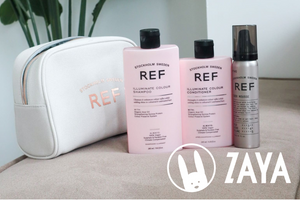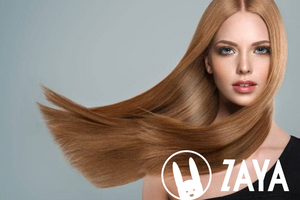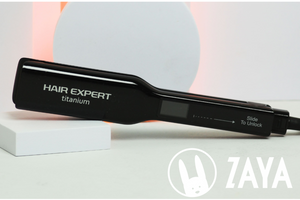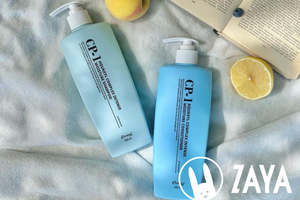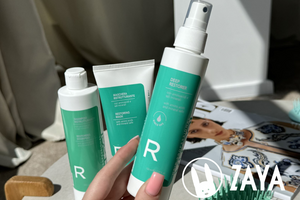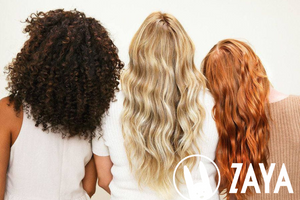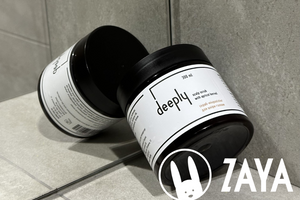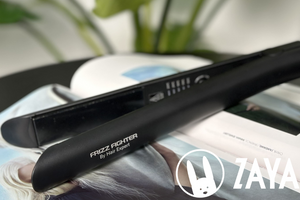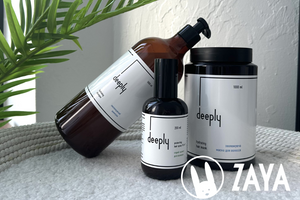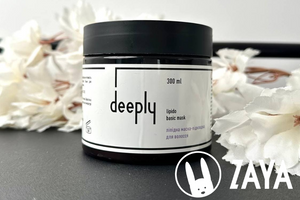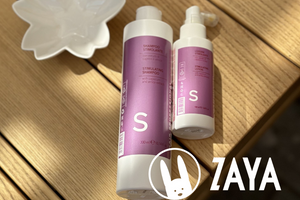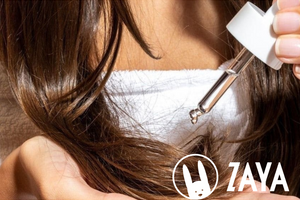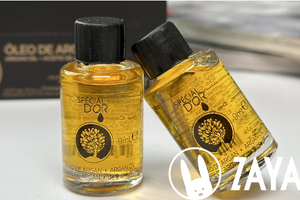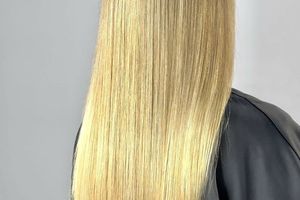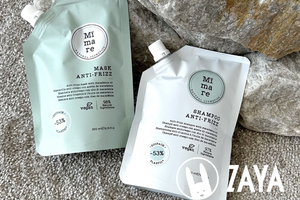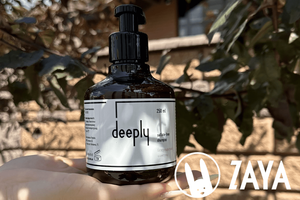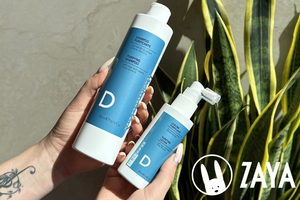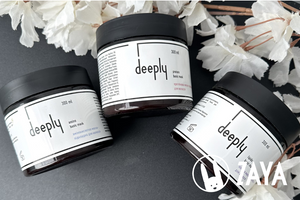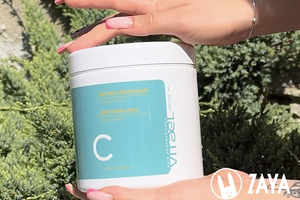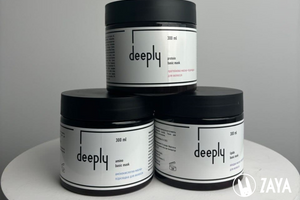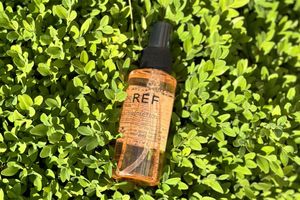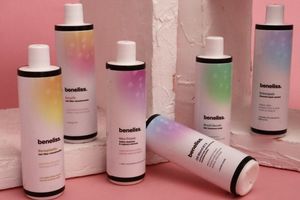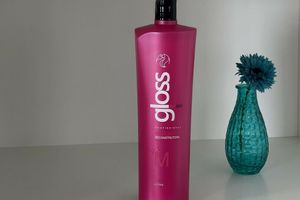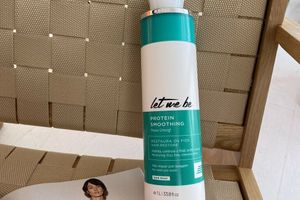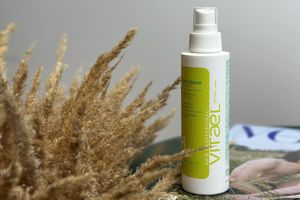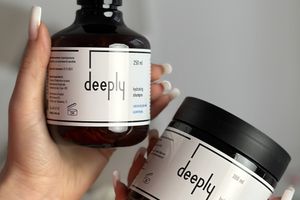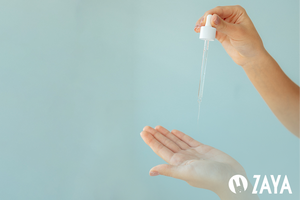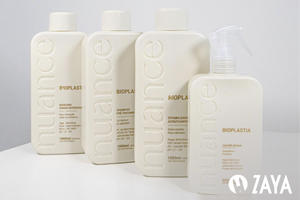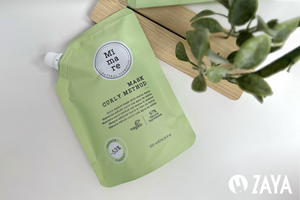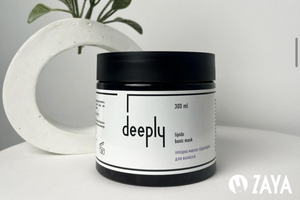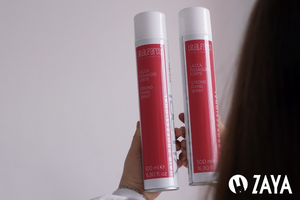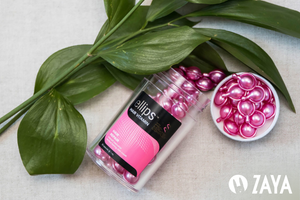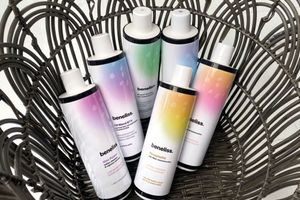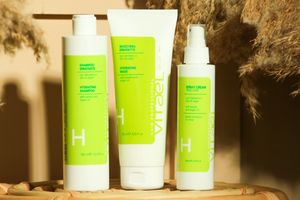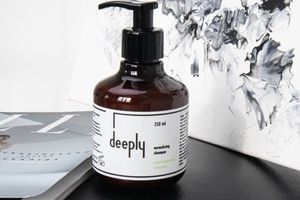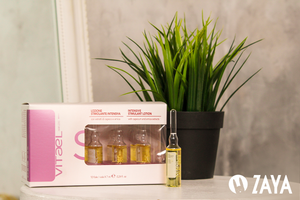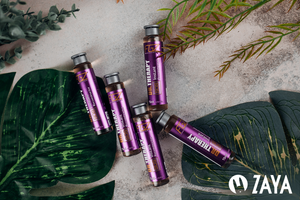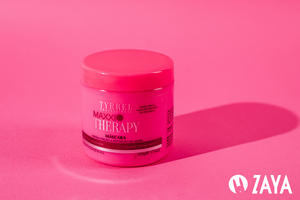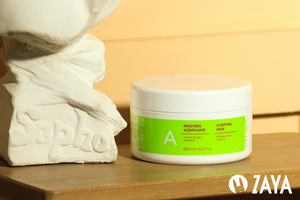The scalp is not much different from the skin on other parts of the body. It also has glands that produce sebum, can become dry due to insufficient hydration, suffer from hard water and excessive aggressive cosmetic components. Despite all these aspects of caring for her, less attention is usually paid than, for example, facial skin or hair care. Namely, the condition of the curls depends on the health and well-being of the scalp. If you ignore the rules of care, you can face not only a feeling of discomfort, irritation, deterioration of the hair condition, but also serious dermatological diseases.
Features of scalp care
Before thinking about the intricacies of scalp care, it is worth learning about its features. After all, the skin in this area is somewhat different from the skin on other parts of the body.
- First, it is thicker than in other areas. This is explained by the large number of hair follicles on the head. They need active blood circulation for intensive nutrition. In addition, there are a lot of sebaceous glands here - they produce sebum, which protects the hair and epidermis from the negative effects of external factors. However, if the activity of the sebaceous glands is disturbed, the skin becomes prone to excessive oiliness and dermatological diseases, in particular seborrhea. In this case, it should be cared for under the supervision of a dermatologist or trichologist.
- Secondly, the scalp has increased sensitivity. This is explained by the presence of a significant number of nerve endings on it. They transmit information to the brain about environmental temperature, pressure or pain. Because of this, the scalp can react very sensitively to the components of cosmetic products or to direct exposure to sunlight. It is also harmed by low temperatures. And if the skin suffers, it also affects the functions of the hair follicles, the curls become duller, dry, weaken, and may fall out. That is why scalp care should be very careful and should be done only with the help of special products that are suitable for a specific skin type. If you use products that have a different purpose, you can provoke a violation of the microbiome of the skin. Therefore, modern trichologists, hairdressers and cosmetologists do not recommend applying balms, conditioners and hair masks to the skin - you should leave at least 2 centimeters. It is also better to refuse to use folk recipes - washing your head with bread or egg yolk, applying onion juice, etc.
And what will be really useful for the skin is high-quality, timely and at the same time moderate cleaning with shampoo. It is worth choosing really high-quality products: for normal and sensitive scalp - sulfate-free products, and for oily - sulfate products. It is also worth periodically pampering the skin with the help of more active cleaning agents, such as peeling or scrub. And after washing your head, you can provide the skin with additional care and use a special tonic or serum. Such products can have moisturizing properties, remove excessive sensitivity, fight dryness or vice versa, greasiness.
Scalp peels
Peeling is a cosmetic product that provides deep cleansing of the skin. It removes keratinized particles and stimulates the active renewal of epidermal cells.
As we said a little above, there are many sebaceous glands on the scalp. They secrete sebum (skin fat), which sticks together with dead epidermal cells and remnants of cosmetics. As a result, a crust is formed, which can look like dandruff.
Peeling softens such formations and removes them, thanks to which the skin becomes clean, itching disappears. Also, after such care, nutrients from other care products are absorbed better.
According to the principle of action, different peelings are not very different from each other. However, it is worth remembering that facial products are definitely not suitable for the scalp. They can dry out the skin, increase dandruff, take away shine, etc.
Peeling for the scalp should not be used in case of:
- presence on the skin of damage, sores, etc.
- recent coloring - it is better to wait 3 weeks
- dermatological diseases
It is worth considering that peeling and cleansing shampoo (a deep-acting agent) are different things. Peeling helps to clean the scalp, and shampoo helps to clean the hair. Such a tool is usually used by specialists to prepare curls for botox, keratin, etc.
Which peels to choose for the scalp?
When choosing peeling for home care, you should give preference to products from proven brands that have been on the market for a long time and have a good reputation. A great choice can be:
- Deeply Refreshing Scalp PeelingThis is a Ukrainian brand product that provides thorough and at the same time gentle cleansing of the scalp. It has a unique composition, in particular, it combines extracts of ginger root, mint leaves and real aloe vera. Thanks to such components, the scalp is deeply cleansed, detoxified and blood circulation is improved - this helps accelerate the growth of curls and improves their general condition. The manufacturer recommends using the product according to the instructions on the package 3-5 times a month.
- Insight Rebalancing Scalp Exfoliating Cream This is a gentle peeling cream from a well-known Italian manufacturer, which is ideal for girls with oily skin. It contains tea tree essential oil, lavender and sage plant extracts. The complex of active components contributes to high-quality cleansing of the skin, removal of dandruff and excess fat. In addition, peeling helps to normalize the activity of the sebaceous glands and helps to strengthen hairs.
After using the peeling, the hair should be thoroughly washed.
Hair scrubs
Scrubs are products that provide deep cleansing and exfoliation through mechanical action (peelings work through a chemical reaction). They contain small particles that act directly on the skin. Scrubs are ideal for those who want to achieve perfect cleansing — literally "to the squeak" and get additional volume.
Among the advantages of such products is a more intense massage effect, which helps to increase blood microcirculation and improve the nutrition of hair follicles. Therefore, scrubs may be more effective for those who want to stimulate hair growth and reduce hair loss. However, in case of excessive activity of the sebaceous glands, they should be used with caution - active stimulation of the skin can increase the secretion of sebum. But there are products with seboregulating components that can also be suitable for girls with oily hair.
It is worth considering that the use of scrubs can lead to traumatization of the skin - to the occurrence of microtraumas. Such negative consequences can be observed in persons with increased sensitivity or in the case of very active scrubbing. And injuries on the skin are not only unpleasant. Microdamages can become an entrance gate for infection. Therefore, you should use scrubs with caution.
Which hair scrub to choose?
In order for scrubbing to be comfortable, safe and effective, it is better to choose professional care products. It can be:
- Deeply Scalp Scrub with Apricot Kernel This is a true masterpiece of cosmetic art. It is able to provide high-quality care, deep cleaning, removal of styling residues and silicones. In addition, it exfoliates dead cells and helps regulate the work of the sebaceous glands. Among its components are sea salt, rich in useful minerals, and small particles of apricot stone, which guarantee gentle care and highly effective removal of impurities.
- Mr.Scrubber Hair Scrub Menthol Oil This product not only deeply cleans the scalp . It also leaves behind a pleasant coolness and a feeling of freshness. With its use, the nutrition of hair follicles is improved, hair growth is activated, the long-awaited shine and incredible volume appear. This effect is achieved thanks to a carefully thought-out recipe, in particular due to the presence of menthol oil and strengthening keratin.
Scrubs for scalp care should be used no more than once a week. And in the case of dry hair - even less often, once every 10-12 days.
Other features of scalp care
Hair, like a magnet, attracts dirt to itself - due to constant friction, it becomes electrified and receives a positive charge. And negatively charged dust particles simply stick to them. The situation worsens due to the uninterrupted production of sebum, which is distributed among the strands during combing. The scalp gets especially dirty, and of course, it does not do it any good. Therefore, experts advise to wash your hair regularly, even if your scalp is dry.
And here it is important to pay attention to:
- Water temperature. Cold water stresses the skin, and dirt does not soften, so getting rid of it, especially at the mouths of hair follicles - where sebum and dirt accumulate - seems problematic. Therefore, the water temperature should be quite high — at the level of 36-37 °C. It is in such water that shampoos foam best.However, it is worth noting that excessively hot water is also harmful. It activates blood circulation processes, opens pores and helps increase sebum production. Regular exposure to hot temperatures leads to hyperfunction of the sebaceous glands.
- Hardness of water. Excessively hard water changes the performance of cosmetics for the worse. Therefore, in the case of increased hardness, it is worth choosing a shampoo with components that will soften it a little. These are products with a neutral level of acidity — 5.5 pH.
- Shampoo. A hair cleanser should meet the actual needs of the hair and its type. Specialists unanimously do not recommend using so-called dry shampoos, because they strongly clog pores and do not provide true cleanliness - they only give a short-term visual effect. Their use can lead to the appearance of dandruff, dermatitis, seborrhea, etc. If you can't do without such products, after them you should clean the scalp with peeling or a scrub - outside of the usual schedule.
After washing your head, you should use additional hair care products - balm or conditioner. You can also apply a mask once every 5-7 days. All these means, as we have already said, are applied exclusively with a margin of several centimeters from the scalp.
Scalp health can also be affected by:
- Serums for the scalp. These are products that can be used after peeling and washing the head for deep care and solving various trichological problems. They have a concentrated composition, may contain vitamins, minerals, useful oils, plant extracts, etc. They can fight hair loss or dryness, affect the sebaceous glands, stimulate the activity of hair follicles, etc.
- Correct drying. In fact, refusing to use a hair dryer does not benefit your hair and scalp. And even more, if you leave your hair wet (especially lying in bed with a wet head or walking for a long time in a turban made of a towel), you can suffer from fungal diseases of the scalp (the same seborrhea) and dry out your hair. Therefore, modern experts strongly recommend drying hair with a hair dryer - at low temperatures and using thermal protection. This will help preserve curls and improve the condition of the scalp.
- Combing. Proper combing helps maintain an attractive appearance of hair, stimulates blood flow to the roots, improves the functions of sebaceous glands, helps remove dead cells from the surface of the scalp, and even stimulates hair growth processes. However, there are nuances - frequent combing of hair that is prone to excessive oiliness leads to even greater activation of the sebaceous glands, and curly hair should be combed only when wet - with fingers or a special comb. Therefore, it is very important to understand which care will be optimal for your hair and choose special accessories according to its needs.
- Hairstyle. The scalp can suffer a lot from constantly wearing tight braids or ponytails. It can also be damaged by hairpins and other hair accessories that can cause mechanical damage (scratches, etc.). Therefore, trichologists recommend changing your hairstyle regularly and letting your hair rest from tight weaving.
Scalp care is a set of procedures and rules. It helps to improve the condition of the hair, stimulate its growth and prevent the occurrence of various dermatological and trichological problems.



























